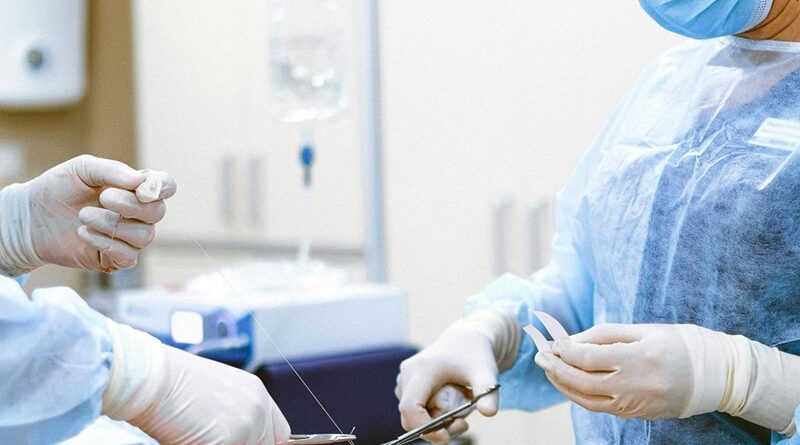Reconstructive Surgery: Restoring Hope and Confidence through Skilled Expertise
Introduction:
Reconstructive surgery symbolizes hope for many, offering a chance to reclaim a sense of normalcy after trauma, disease, or congenital issues.
This surgical specialty is dedicated to the restoration of form and function, providing individuals the opportunity to lead fuller, more confident lives.
Surgeons meticulously sculpt and repair the human body, utilizing advanced technology to yield outcomes that were once deemed unattainable.
In the dance of scalpel and skin, it is the surgeon’s understanding of the body’s complexity and healing that transforms lives.
The Role of Reconstructive Surgery in Modern Medicine
Sitting within the broad and diverse field of plastic surgery, reconstructive surgery is the supportive structure—it is about healing and repair rather than cosmetic enhancement.
It serves as the fundamental aspect of plastic surgery aimed at correcting anomalies, repairing damage from injuries, or the aftereffects of surgery.
Reconstructive surgery does more than mend; it gives back—whether it’s restoring a woman to wholeness post-mastectomy, giving a child born with a cleft lip a new smile, or reconstructing a hand to grasp, touch, and feel.
Conditions managed range from congenital abnormalities to traumas, burns, and the aftermath of tumor removals. It is the broad-spectrum solution to defects that impair regular function and affect one’s body image and, thus, the quality of life.
Surgeons work closely with patients from many walks of life who have faced various hardships, perhaps none so poignant as the child who enters school without the shadow of a birth defect or the cancer survivor who once again recognise themselves in the mirror.
These are the achievements of reconstructive surgery, the restoration of normalcy, and the instillation of hope that resonates through modern medicine.
Types of Reconstructive Surgery
Reconstructive surgery spans a multitude of procedures, each designed to address specific areas of need, restoring both form and function while significantly impacting patients’ lives. Among the most common are:
- Breast Reconstruction: Post-mastectomy or lumpectomy, breast reconstruction offers women a path to be more confident of their body image and self-esteem. Using implants or tissues from other parts of the body, surgeons work to recreate the breast. The impact on a woman’s psychological well-being and femininity can be massive, playing a role in post-cancer recovery.
- Cleft Lip and Palate Repair: Addressing one of the most common congenital defects, this surgery not only transforms a child’s appearance but also significantly improves important functions such as feeding, speech, and breathing. The emotional and social benefits for the child and their family are immeasurable, offering a life free from the stigma associated with this condition.
- Hand Surgery: From severe injuries to congenital defects and diseases affecting the hand, this type of surgery seeks to restore the hand’s functionality. The ability to grasp, hold, and manipulate objects is fundamental to independence and quality of life, making hand surgery among the most life-changing reconstructive procedures.
- Skin Cancer Removal and Reconstruction: Following the removal of skin cancer, reconstructive surgery plays a vital role in repairing the skin and tissues. For areas where skin cancer removal has left significant defects, especially on the face, reconstructive techniques ensure that patients can continue to lead lives without the constant reminder of their battle with cancer.
The Journey Towards Restoration
The road to restoration through reconstructive surgery typically begins with an in-depth consultation where surgeons discuss the patient’s needs, expectations, and the potential outcomes.
This initial meeting is important in developing a tailored approach, as each surgery is as unique as the individual receiving it. Following the creation of a personalized surgical plan, patients are guided through the preparation, the procedure itself, and the recovery process.
Recovery support, including follow-up visits and rehabilitation, is integral to the journey. Surgeons and medical teams closely monitor progress, ensuring that the healing process is on track and addressing any concerns that may arise.
This comprehensive, patient-centered approach ensures that each individual receives care that not only addresses physical restoration but also supports their overall well-being.
Technological Advancements in Reconstructive Surgery
Technological innovations have really enhanced the capabilities of reconstructive surgery, offering new levels of precision, possibilities, and outcomes. Among these:
- 3D Printing: Used for surgical planning and the creation of implants or grafts moulded to fit the patient perfectly. This technology has revolutionized how surgeons approach complex reconstructions, allowing for increased accuracy and reduced surgery times.
- Microsurgical Techniques: These techniques have transformed the success rates of tissue transplantation, nerve repairs, and the reattachment of severed limbs or digits. By working with the smallest blood vessels and nerves, surgeons can achieve repairs and reconstructions that were once deemed impossible.
- Tissue Engineering: This frontier science combines scaffolds, growth factors, and cells to create living tissue in the lab. Used in everything from skin grafts to organ reconstruction, tissue engineering holds the promise of limitless natural tissue replacement, reducing the need for donor tissues and improving integration and function.
These advancements stand as testaments to the ever-evolving field of reconstructive surgery, promising a future where limitations are continuously overcome, offering patients a tangible return to wholeness.
Choosing the Right Surgeon
Selecting a qualified and experienced reconstructive surgeon in Plano, TX, is a critical step in your journey towards healing and restoration. The expertise and skill of your surgeon directly influence the outcomes of your surgery and your overall experience.
When searching for the right surgeon, prioritize board certification in plastic surgery as it validates their specialized training and expertise in the field. Additionally, look for a surgeon with extensive experience in the specific procedure you need, as this expertise can significantly impact the surgery’s success.
During consultations, it’s important to feel comfortable and confident with your surgeon. Ask about their experience with similar cases, request to see before and after pictures of previous patients, and inquire about the expected recovery process and outcomes.
Understanding the risks and how potential complications are managed is also vital. Listening to how a surgeon answers your questions can give you insight into their approach and philosophy regarding patient care.
The Future of Reconstructive Surgery
The future of reconstructive surgery holds promising advancements that wants to improve patient care and surgical outcomes further. With ongoing innovations in regenerative medicine, there is potential for even more personalized and effective treatments, such as the growth of organs and tissues from a patient’s own cells, eliminating the risk of rejection.
Robotics and AI are set to refine surgical techniques, offering greater precision and reducing recovery times. Moreover, virtual and augmented reality could revolutionize surgical planning and patient education, making complex procedures more accessible and understandable.
The Transformative Impact of Reconstructive Surgery
Throughout this guide of reconstructive surgery, the common thread is the transformative impact it has on lives—repairing not only the physical form but also imbuing individuals with new hope and confidence. The skilled expertise of dedicated surgeons, coupled with technology, makes these life-altering procedures possible.
If you or someone you know could benefit from reconstructive surgery, take that first step towards consultation. Whether addressing a congenital issue, recovering from trauma, or combating the effects of disease, reconstructive surgery offers a pathway to a renewed sense of self.



